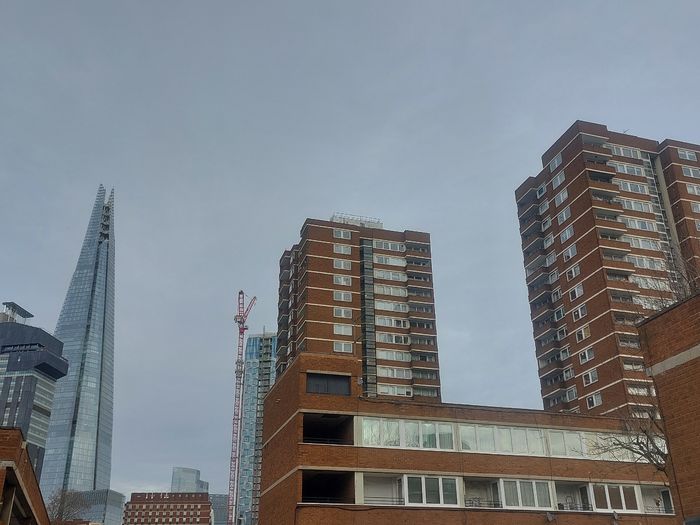This article contains discussions of sexual violence, rape culture and misogyny.
In February 2024, Amanda Rowe from the IOPC (Independent Office for Police Conduct) published a guidance report on “Ending victim blaming in the context of violence against women and girls”. As the report states, “challenging victim blaming in the context of violence against women and girls is a crucial step towards ending it”. It draws on the concept of “secondary victimisation”, the additional harm inflicted when survivors are blamed, invalidated, or met with disbelief. Survivors often internalise this, manifesting in self-blame, increasing trauma and preventing survivors from reporting to the police, opening up about their experiences, or seeking support.
In my own experience of sexual assault, this couldn’t have been more true. While most of those I turned to for help validated my feelings, a few minimised the perpetrator’s actions by citing intoxication, as if that somehow made the violence less real, less harmful. This “secondary victimisation” deepened my pain. I questioned whether my experience even mattered. It seemed as though I had somehow misinterpreted the violation of my own boundaries.
“It seemed as though I had somehow misinterpreted the violation of my own boundaries”
Reflecting on this, I realised that self-blame is a learned behaviour, symptomatic of rape culture and rooted in sexism and the normalisation of sexual violence rather than personal failure. Rape myths gaslight survivors into self-blame; perpetrators make conscious choices that can’t be excused by intoxication or losing control. As Rowe’s report states, “their actions were a decision they chose to make, and they alone are responsible for their behaviour.” Other myths like ‘he didn’t mean to hurt you’ or ‘it wasn’t really assault’ invalidate survivors’ experiences and block access to support.
Gisèle Pelicot’s story highlights the harrowing psychological toll of victim-blaming, extending far beyond the assault itself. For nearly a decade, her ex-husband and 50 other men raped and abused her, subjecting her to unimaginable violations. After the trial, Pelicot spoke publicly, saying, “I wanted all of society to be a witness,” confronting not only her perpetrators but also cultural norms that silence survivors. By waiving anonymity, she rejected the shame and stigma society unfairly places on survivors, redirecting shame and accountability where it belongs – on the perpetrators and the societal structures that enable them.
Cultural narratives, reinforced by media and legal systems, scrutinise survivors’ actions more harshly than the perpetrator’s, making survivors doubt their boundaries and experiences. Pelicot’s courage challenges society to confront rape culture and to support survivors in reclaiming agency. To break free, we must unlearn these harmful messages and reform the legal system to empower and protect victims.
“Accepting that it was not my fault meant confronting how little control I actually had, a truth that was as liberating as it was unsettling”
The overwhelming commonness of sexual assault and gendered violence can tempt us to accept self-blame narratives as a coping mechanism. In my case, I realised that I had internalised a narrative of self-blame, one that provided an illusion of control. Accepting that it was not my fault meant confronting how little control I actually had, a truth that was as liberating as it was unsettling.
Our blurred understanding of consent means we might struggle to identify assault. Beliefs like ‘I consented to one thing at one time so I couldn’t withdraw consent’, or ‘because I liked and trusted the person, it couldn’t have been assault’, or ‘I should have wanted it’ all reflect societal conditioning rather than reality. These are all assault, an assault perpetrated by a whole society, a sick system that is designed to allow this to happen, and sexual assault to escape even a wandering definition of itself.
Mainstream pornography also enables this culture, prioritising male pleasure and dominance while women and gender minorities are dehumanised. We are taught that subjection to these problematic ideals around consent define and measure our worth, making us desirable and bringing us fulfilment. Instead, our self-esteem is affected and protecting our boundaries and well-being in sexual relationships becomes increasingly difficult.
I realised how the assault reinforced the belief that my worth was tied solely to my body as a sexual object. I convinced myself that I should desire what the perpetrator did to me, even in my vulnerable state where I didn’t want or consent to it. I believed he was entitled to me. Although I felt the assault’s painful effects, it did not register as assault until much later.
Survivors have often internalised such harmful narratives about consent and their worth. Accepting that responsibility lies solely with the perpetrator, not with how we did or did not react, is vital. No one should have to endure violation of their boundaries to realise their worth.
Breaking free from self-blame requires both individual and collective effort. We are all responsible for challenging rape culture through calling out misogyny, victim-blaming assumptions or ‘jokes’. We must validate and reassure survivors that they bear no responsibility. Recognising that victim-blaming and self-blame are a symptom of social discrimination is key to preventing its manifestation.
This requires educational reforms and destigmatising conversations about consent, boundaries and healthy relationships. Intersectionality is key in showing how power dynamics and societal structures disproportionately affect marginalised communities, who were shown in the IOPC report to be less likely to report violence. To break the chains of self-blame that fuel rape culture, we must reject the narratives that make survivors feel responsible for their trauma, shift accountability to the perpetrators, and ensure healing is rooted in support, not shame.
*If you require support, Cambridge University offers a range of services for you to access, including the Harassment and Violence Support Service (HVSS), as well as within your college, such as tutors, porters, and wellbeing staff.


